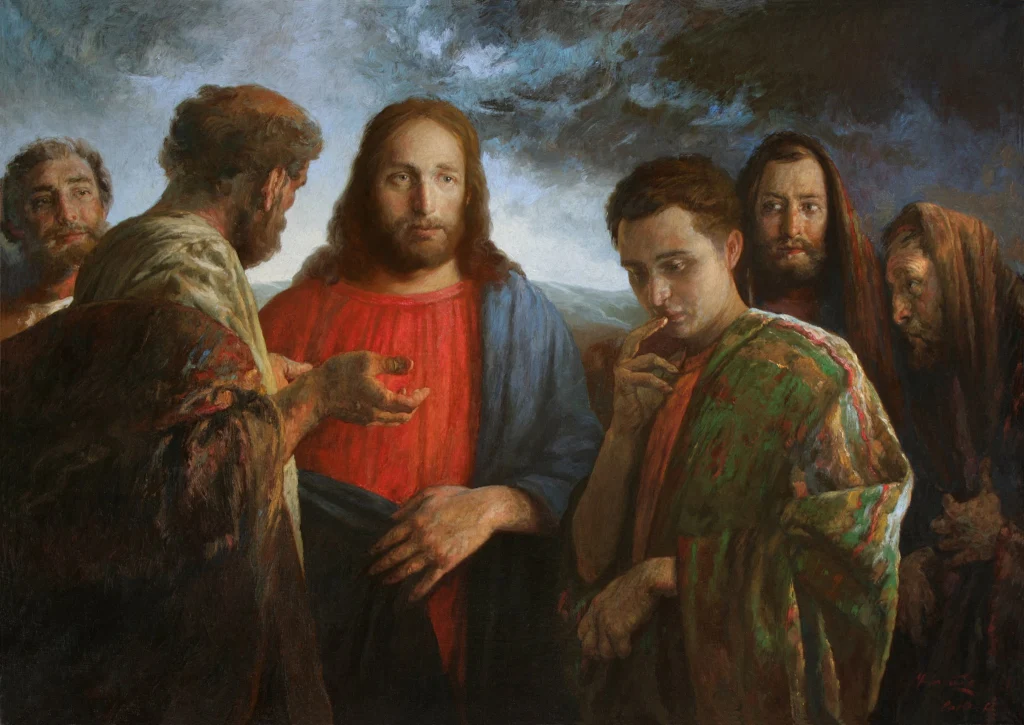Jijo Kandamkulathy, CMF
Claretian Publications, Macau
28th Sunday in Ordinary Time – Year B
Gospel Reflection – Mk 10:17-30
The gospel passage discusses who gets to inherit the Kingdom of God. It begins with the question of a young man to Jesus on what he should do to inherit eternal life. This is one of the questions in the gospels that often lost its punch in the translations. The question is about inheriting eternal life and is quite a loaded question. He is not asking about gaining or attaining eternal life but inheriting eternal life.
Inheritance is a right reserved for children. The father shares what he owns with his children. Here the property that the young man has asked from Jesus is eternal life. Ultimately the question is about becoming a child of God, who has the right to divine patrimony.
Jesus talks about keeping the Old Testament commandments. The young man replies all in the positive. He has already been doing very well as a Jew; he was exemplary. He was an accomplished man in all social indicators of success. He was rich; he lived his religion well.
Observance of the Old Testament Law assured him a good long life on earth. Jesus commends him for the good things that he has accomplished. However, the man was searching for something deeper, something that takes him beyond the temporary to the eternal. He knew that he lacked something and asked the good master for a piece of advice to find what he lacked.
Knowing what he lacked, Jesus loved him. There was no reason to ridicule this man. He was not one of those lawyers who came to test Jesus. He was a genuine seeker. So, he loved him. Then he said that he lacked only one thing but quite did not say what he was lacking. Instead, he told him what he had more than required, his riches. Jesus asked him to sell all he had and follow him. Had he followed this advice, he would have found out what he lacked. But he could not convince himself to do what the Lord asked him.
Now, it needs some deeper study to identify what Jesus found lacking in him. When someone does not own anything, what happens to the person? A sense of insecurity begins to creep in. Uncertainties of tomorrow will make one anxious. Can you handle that insecurity and anxiety? Well, some people can get over their anxiety by putting their trust in God. Jesus appreciates the poor widow who puts all that she has in the treasury. She trusts in God; that is why she can leave all that she has in the hands of God. For two tiny coins, she bought the Kingdom of God! The value of the two little coins! Consider this in contrast with the rich young man who had all his riches one could imagine but could not buy even a square centimetre of that Kingdom!
What did he lack, then? He lacked trust in God. Everything one owns is a blessing of God, and He will continue to bless when one shares, is the realization that eluded the rich young man. The man went away sad.
Selling everything one has and still lives a life of anxiety is misery. One is only adding to the number of miserable people in the world. The example of Ananias and Saphira from the Acts of the Apostles (Acts: 5) give us a picture of people of this nature. They are pulled by the spirit of the Word and sell everything but cannot overcome their sense of anxiety. So, they keep some money with them.
When we put these stories together, we understand one thing, having money does not prevent someone from inheriting the Kingdom of God; instead, the inability to share it with others and the anxiety of people about losing it prevents one from the inheritance of the Kingdom. The poor widow inherited the Kingdom by leaving all her anxieties to God, while the rich young man returns with sadness, keeping all his anxieties with him. Zacchaeus enters into that Kingdom by distributing all that he had. The rich young man is the reverse image of Zacchaeus. He finds the Kingdom as the greatest treasure and distributes everything to gain it, while the rich young man could not trade his riches for the Kingdom of God.
Money and riches are great instruments to trade with to gain what gives meaning to one’s life. But unfortunately, money loses its value as soon as people hoard it, unable to buy what gives them meaning.
The master goes on saying that it is easier for a camel to go through the eye of a needle than for a rich man to enter heaven. Scholars are divided on the meaning of the usage, ‘eye of the needle’. But the debate has not made it any easier for the rich man to make it to the Kingdom of heaven. He has to shed his wealth to have a Kingdom experience.
On behalf of the disciples, Peter asks, “what will we get, for all that we have left behind?” The master offers a hundred-fold return of all that is left behind. How true these words are for those who have truly left their home and possessions. Many strangers take care of them, help them realize their projects and dreams. They also will have persecutions. But, the Kingdom experience is assured.
Are you going away? Wait……., do not go back sad. Why not try the advice of the Lord!


 Follow
Follow


